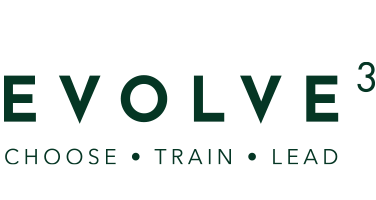
14 Sep The value of a self-sustaining hospitality business
A key factor that can significantly impact the value of a hospitality business is its ability to operate without the constant presence and involvement of the owner. While many entrepreneurs enter the industry with a hands-on approach, there is a growing realisation that a hospitality business that can function independently, without the owner working in it, holds a distinct advantage in terms of value. This is an exploration of why a hospitality business that operates without the owner’s direct involvement is worth more than one that requires their constant presence.
Scalability and Growth Potential
One of the primary advantages of a hospitality business that can operate autonomously is its scalability and growth potential. When an owner is tied to the day-to-day operations, their time and energy are limited, and this can hinder the expansion of the business. In contrast, a business that can function without the owner allows for a greater focus on strategic growth, such as opening new locations, expanding services, or entering new markets.
Consider the example of a successful restaurant owner who is actively involved in the kitchen and front-of-house management. While this owner may run a profitable establishment, they are limited by their physical presence and time commitment. On the other hand, a restaurant owner who has established efficient systems and a competent team can explore opportunities for growth, such as opening additional venues or catering services, without being tied down to the daily operations.
Attracting Investment and Partnerships
A hospitality business that can operate independently is more attractive to potential investors and partners. Investors are more likely to be interested in a business that is well-structured and capable of generating consistent profits without the owner’s constant involvement. This autonomy gives them confidence that their investment will be managed effectively and that they will see a return on their capital.
Additionally, partnerships with other businesses or industry leaders become more feasible when the owner’s presence is not a requirement for the business’s success. Collaborations and joint ventures can bring new opportunities and resources that would be challenging to secure if the owner had to oversee every aspect of the operation.
Employee Empowerment and Job Satisfaction
A hospitality business that can function independently requires a team of well-trained and empowered employees. When owners are heavily involved in daily operations, employees may rely on them for decision-making and problem-solving, which can lead to a disempowered workforce. In contrast, a business that encourages employee autonomy and responsibility fosters a sense of ownership among its staff.
Empowered employees are more likely to take initiative, provide excellent customer service, and contribute to the overall success of the business. They are also more satisfied in their roles when they have the authority and trust to make decisions. This not only improves employee retention but also positively impacts the reputation of the business, as satisfied employees often translate into satisfied customers.
Work-Life Balance and Sustainability
For owners, achieving a work-life balance is a critical factor in their overall well-being and sustainability. A hospitality business that requires the owner’s constant presence can be emotionally and physically draining, leading to burnout and decreased quality of life. This can ultimately affect the long-term viability of the business.
On the other hand, an owner who has set up a self-sustaining hospitality business can enjoy a healthier work-life balance. They have the flexibility to step back from day-to-day operations, take vacations, and pursue other interests while still reaping the financial rewards of their business. This balance not only benefits the owner’s personal life but also ensures the business’s sustainability over the years.
Resilience and Adaptability
The ability of a hospitality business to operate independently reflects its resilience and adaptability in the face of changing market conditions. The business is better equipped to weather economic downturns, unexpected challenges, and industry disruptions when it is not reliant on the owner’s constant presence.
Consider the impact of unforeseen events like the pandemic. Businesses that were highly dependent on their owners struggled to adapt to new health and safety regulations, closures, and reduced capacities. In contrast, businesses with strong operational systems and capable management teams were better prepared to pivot their strategies, implement safety measures, and navigate the crisis successfully.
The takeaway
The value of a hospitality business that can operate without the owner working in it is undeniable. Such a business is more scalable, attractive to investors and partners, and capable of fostering employee empowerment and job satisfaction. It also allows for a healthier work-life balance for the owner and ensures the business’s resilience and adaptability in a changing economy.
While some owners may initially resist relinquishing control and stepping back from daily operations, they must recognise that this transition is not a sign of disengagement but rather a strategic move to enhance the long-term value and sustainability of their business. Ultimately, a self-sustaining hospitality business is an asset that not only generates financial returns but also provides the owner with the freedom to pursue other endeavors and enjoy a more fulfilling personal life.
To learn more about putting your hospitality business under management, get in touch.



